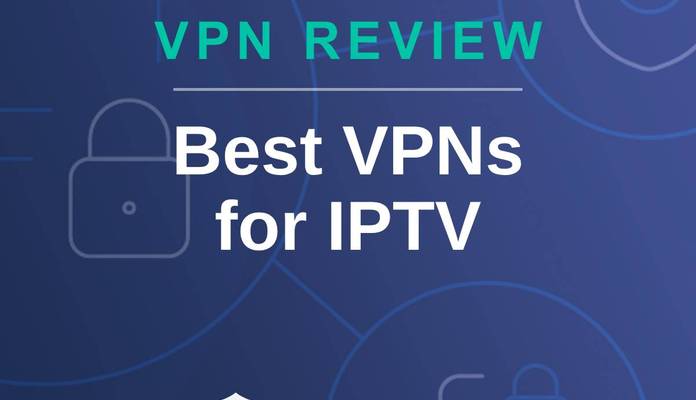What Even Is an IPTV VPN?
Alright, let’s break it down without all the tech talk. IPTV is internet TV. Instead of watching shows or sports through a cable box or satellite dish, you stream them using the internet. Simple.
Now, a VPN (short for Virtual Private Network) is like a secret tunnel that hides what you’re doing online. When you use a VPN with IPTV, it masks your location, encrypts your data, and gives you more privacy. Basically, it makes your IPTV experience safer and more stable.
Put them together and boom — IPTV VPN. It’s just using a VPN while streaming IPTV. And yes, it matters more than most people think.
Why You Need a VPN for IPTV
If you’re using IPTV in 2025, you’ve probably noticed things can go wrong. Buffers out of nowhere. Channels randomly disappear. Or worse — you get blocked.
Here’s how a VPN helps with all that:
1. Avoid ISP Throttling
Ever notice how your stream suddenly slows down in the evening? That’s probably your internet provider (ISP) throttling IPTV traffic. They know you’re streaming a lot, and they don’t like it. A VPN hides what you’re watching, so your ISP can’t target or slow it down.
2. Bypass Geo-Blocks
Some IPTV content is region-locked. A channel might work in the UK but not show up if you’re abroad or on holiday. A VPN lets you change your virtual location. So if you want to access UK sports while in Spain? Just pick a UK server and boom — you’re in.
3. Keep Things Private
IPTV is legal when done right, but let’s be honest — not every provider is squeaky clean. A VPN hides your IP address, making it harder for anyone to track what you’re watching. It’s like pulling the curtains shut.
4. Protect Against Blocks
Sometimes, IPTV links or portals get blocked by ISPs. Using a VPN helps you get around these blocks. It’s like unlocking a door that was slammed shut.
Real Talk: What Happens If You Don’t Use a VPN?
You might be thinking, “It works fine without one.” And maybe it does… for now.
But here’s what could happen without a VPN:
- Your streams buffer more often.
- Channels get blocked.
- You get warning letters from your ISP.
- Your IPTV provider could get taken down, and you lose access.
- Your viewing data isn’t private.
It’s like driving without a seatbelt — sure, it works until it doesn’t.
Best VPN Features to Look for (For IPTV)
Not all VPNs are built the same. If you’re just grabbing a random free one, don’t be surprised if it ruins your stream. Here’s what you should look for in a good IPTV VPN:
- Fast servers in the UK, US, and Europe (especially if you watch live sports)
- No-logs policy so nothing is tracked
- Unlimited bandwidth
- Works with Firestick, Smart TVs, and mobile
- Strong encryption (AES-256 is ideal)
- Kill switch (in case VPN disconnects, you won’t leak data)
Free vs Paid VPN for IPTV
Let’s keep it real — free VPNs sound good until they start messing up your stream every 5 minutes. They’re slow, full of ads, and often log your activity.
Paid VPNs like NordVPN, Surfshark, and ExpressVPN are way more reliable. You get faster speeds, better privacy, and no surprise drops in quality. Plus, most of them let you use one account on multiple devices.
Devices You Can Use a VPN On (For IPTV)
- Firestick / Fire TV: Install the VPN app directly or set it up via your router
- Smart TVs (Samsung, LG, etc.): Use a router-level VPN or smart DNS if the app isn’t supported
- Android TV Boxes / Phones / Tablets: Just install the VPN app
- iOS Devices: VPN apps work fine — just pick one that supports streaming
- Windows / macOS: Easy install, especially for watching IPTV on VLC or web portals
Can IPTV Providers Detect If You’re Using a VPN?
Most IPTV services don’t care. They actually expect you to use a VPN. Some even recommend it.
But some low-quality services might block VPN IPs. That’s rare though — and good providers like FHDTV IPTV UK usually work great with VPNs. If you’re ever unsure, just ask their support team.
How to Use a VPN with IPTV (Quick Steps)
- Sign up for a VPN (go for a reliable one like Surfshark or NordVPN)
- Download the app on your device
- Connect to a fast server (usually UK, if you want UK channels)
- Open your IPTV app (like IPTV Smarters, TiviMate, etc.)
- Start watching – everything should work smoother now
Final Tips from a Regular IPTV User
I’ve been using IPTV for years, and trust me — a VPN makes a massive difference. Especially during live events when half the country is streaming the same match. Without a VPN, I get stuttering and blackouts. With it? Clean stream, no drama.
Here’s my setup:
- IPTV app: TiviMate
- Device: Firestick 4K Max
- VPN: Surfshark, always connected to a UK server
Since switching to this combo, I’ve barely had any issues. It just works.
Conclusion: Don’t Stream Without a VPN in 2025
Look, IPTV is the future. But like anything online, it comes with risks — buffering, blocks, and privacy headaches. That’s why pairing it with a VPN isn’t just smart — it’s necessary.
If you want to get the most out of your IPTV, avoid annoying slowdowns, and keep things private, grab a VPN. It’s a tiny price for a huge upgrade.
Whether you’re watching with FHDTV IPTV UK, using a VPN is what turns good streaming into great streaming.





























